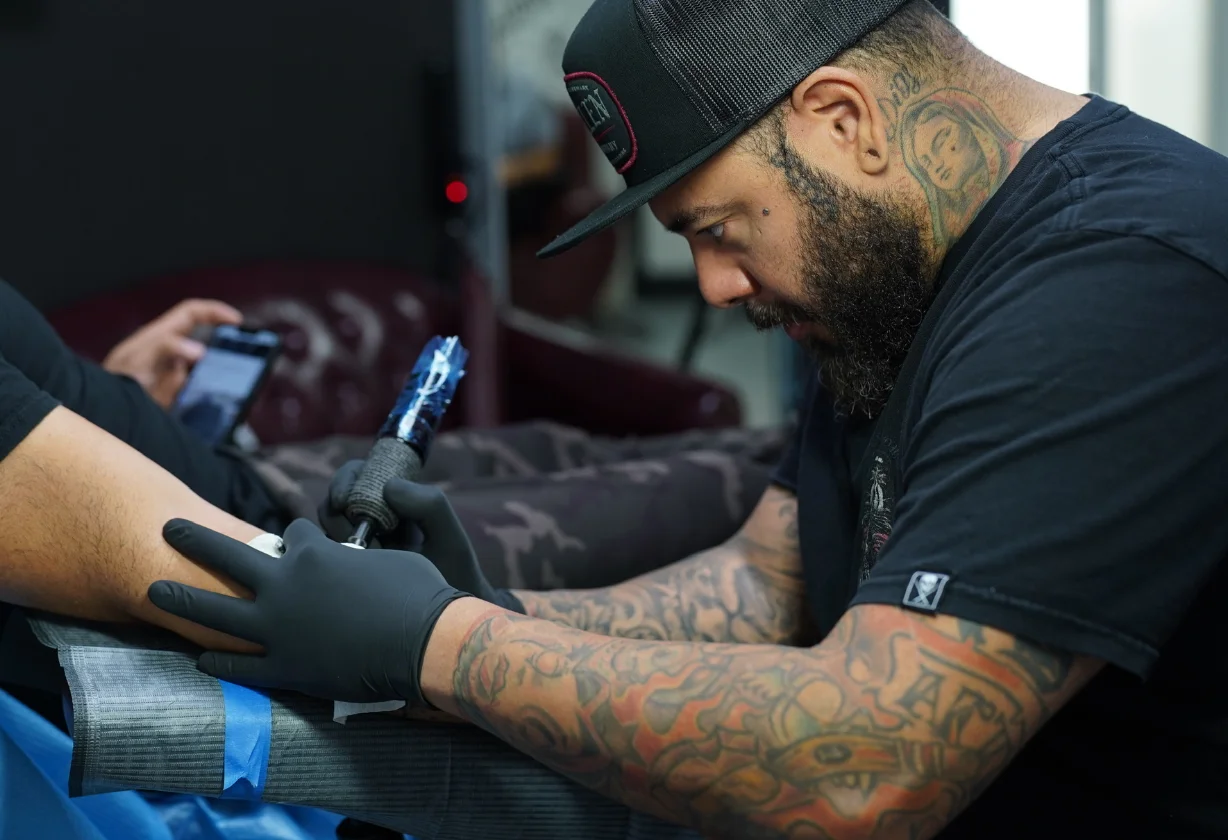Understanding the potential risks associated with tattoos is crucial, especially when it comes to concerns about cancer. There is no conclusive scientific evidence that tattoos directly cause cancer, certain components in tattoo inks may contain carcinogenic substances. This article aims to explore the topic comprehensively, examining tattoo ink ingredients, the association between body art and skin cancer, and other types of cancer. Additionally, common concerns such as skin infections and allergic reactions will be addressed, as well as safe tattooing practices and proper aftercare tips for a healthy tattoo healing process.

Table of Contents
Understanding the Link between Tattoos and Cancer
Tattoos have become a popular form of self-expression, but concerns regarding their potential risks to health, including the development of cancer, have raised alarm bells. While there is no definitive evidence directly linking body art to cancer, it is important to explore the possible connections and understand the factors that might contribute to any associated risks.
Tattoo Ink Ingredients: Potential Health Risks
Tattoo inks consist of various pigment and dilution combinations, some of which may contain chemicals considered carcinogenic. For instance, certain inks contain a substance called azo, also used in automotive paints, while others may contain polycyclic aromatic hydrocarbons (PAHs), known carcinogens. Additionally, tattoo inks can contain alcohols, barium, cadmium, copper, lead, mercury, minerals, nickel, plastics, and vegetable dyes. Notably, tattoo inks are not regulated or approved by the FDA, leaving room for potential health risks.
Examining the Association: Tattoos and Skin Cancer
There is no conclusive evidence establishing a direct causal link. While some studies suggest that cases of skin cancer associated with tattoos are mainly coincidental, certain tattoo ink components, such as PAHs, have carcinogenic properties. Furthermore, factors like the location and size, sun exposure, and individual susceptibility may play a role in the development of skin cancer in tattooed individuals.
Exploring the Connection: Tattoos and Other Types of Cancer
Beyond the potential link to skin cancer, the exploration of the connection between body art and other types of cancer is also important. While limited research is available on this subject, some studies have suggested a possible association between tattoos and an increased risk of certain cancers, such as liver cancer and lymphomas, primarily in individuals with extensive tattoo coverage and pre-existing risk factors. However, more research is needed to establish conclusive evidence and determine the exact mechanisms involved.
Addressing Common Concerns and Misconceptions
Can Tattoos Cause Skin Infections?
When not properly cared for or done under unsterile conditions, can increase the risk of skin infections. Bacterial infections like staphylococcus or streptococcus can occur if the tattoo needle or ink is contaminated, or if the tattooed area is not kept clean. Common symptoms of a skin infection include redness, swelling, pain, and oozing from the tattooed site. Seeking medical attention and following proper aftercare instructions can help prevent and treat these infections.
Allergic Reactions to Tattoo Inks: What You Need to Know
Some individuals may develop allergic reactions to certain tattoo inks, particularly those containing specific pigments such as red or yellow. These reactions can range from mild irritation to more severe symptoms like itching, rash, or even swelling. It’s essential to inform your tattoo artist of any known allergies or sensitivities to avoid potential complications. Patch tests can also help identify potential allergic reactions before getting a tattoo.
Tattoo Removal Options: Cost, Procedures, and Risks
While body art is considered permanent, advancements in tattoo removal techniques have made it possible to remove or fade unwanted designs. Laser tattoo removal is one common method, where laser beams break down the tattoo ink particles. However, it’s important to note that tattoo removal can be a costly and time-consuming process, requiring multiple sessions. Additionally, risks such as scarring, skin discoloration, or incomplete removal can occur, so consulting with a professional is essential.
Debunking the Myth: Tattoo Removal Creams
Tattoo removal creams claiming to remove tattoos without any professional assistance are often ineffective. These creams typically don’t penetrate deep enough into the skin to break down the ink particles, making it unlikely for them to produce significant results. It’s best to consult a qualified dermatologist or tattoo removal specialist for safe and reliable tattoo removal options.
Ensuring Safe Tattooing Practices
When getting a tattoo, it is crucial to prioritize safety and choose a reputable tattoo artist and studio. Follow these guidelines to ensure a safe tattooing experience:
Choosing a Reputable Tattoo Artist and Studio
Put your health first by selecting a skilled and professional tattoo artist. Consider the following factors:
- Research local tattoo studios and artists to find reputable options.
- Look for certifications and licenses that demonstrate the artist’s expertise and adherence to safety standards.
- Review portfolios of potential artists to assess their skill level and style.
- Read reviews and ask for referrals from friends or family who have had positive experiences.
Aftercare Tips for a Healthy Tattoo Healing Process
Proper aftercare is essential for a successful tattoo healing process. Follow these tips:
- Listen to your tattoo artist’s instructions regarding aftercare.
- Clean your tattoo gently using mild, unscented soap and warm water.
- Apply a thin layer of recommended ointment or moisturizer to keep the tattoo hydrated.
- Avoid exposing your tattoo to direct sunlight, swimming pools, hot tubs, and excessive moisture during the healing process.
- Avoid picking, scratching, or rubbing the tattoo to prevent infections and scarring.
Tattoo Aftercare Products and their Effects
Various aftercare products can aid in the healing process, but be aware of their effects:
- Antibacterial ointments or creams can help prevent infections but may interfere with the tattoo healing process if overused.
- Fragrance-free lotions or tattoo-specific moisturizers can keep the skin hydrated during the healing process.
- Some aftercare products contain ingredients that may cause allergies or adverse reactions, so consult with your tattoo artist or a dermatologist before using any specific product.



